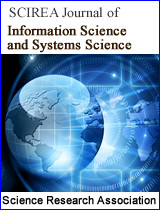Science of Metals Through Lens of Microscope
DOI: 10.54647/isss12169 94 Downloads 15736 Views
Author(s)
Abstract
Man atempts to know and see what is not visible with the naked eye goes back to the far past. By the combination of concave and convex lenses, in the 16th century, Dutchman Janssen made the first ever-increasing instrument. Robert Hooke was first used to illuminate objects using artificial light and gave a first description of plant cells still afar 1665. Henry Clifton Sorby, in the 1960s, was the first to apply a microscope in metal testing. Today, microscopes are used daily for the testing purity of metals and alloys, the presence of nonmetallic inclusions, the microstructural phase present in the alloys as a result of various forms of heat treatment. This paper gives an overview of the possibilities of light microscopes in the testing of metal materials.
Keywords
light microscope, metalic materials, steel, microstrukture
Cite this paper
Belma Fakić, Adisa Burić, Edib Horoz,
Science of Metals Through Lens of Microscope
, SCIREA Journal of Information Science and Systems Science.
Volume 5, Issue 6, December 2021 | PP. 114-122.
10.54647/isss12169
References
| [ 1 ] | D. Marković, Fizička metalurgija 1, Univerzitet u Beogradu, Tehnički fakultet u Boru, 2013. |
| [ 2 ] | H. Šuman, Metalografija, TMF, Beograd, 1989. |
| [ 3 ] | B.L. Bramfitt, Metallographer’s guide, Practices and Procedures for Irons and Steels, ASM International, 2002. |
| [ 4 ] | George F. Vander Voort, Metallography Principles and Practice, ASM Inernational, Fourth printing, June 2007 |
| [ 5 ] | ASTM E 3 -11 - Standard Guide for Preparation of Metallographic Specimens |

